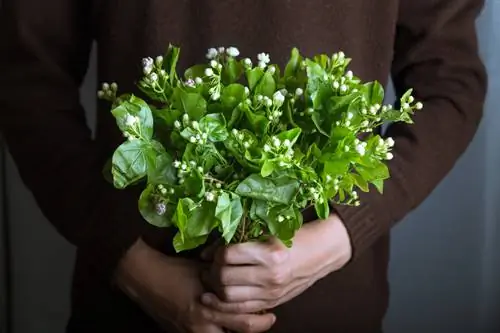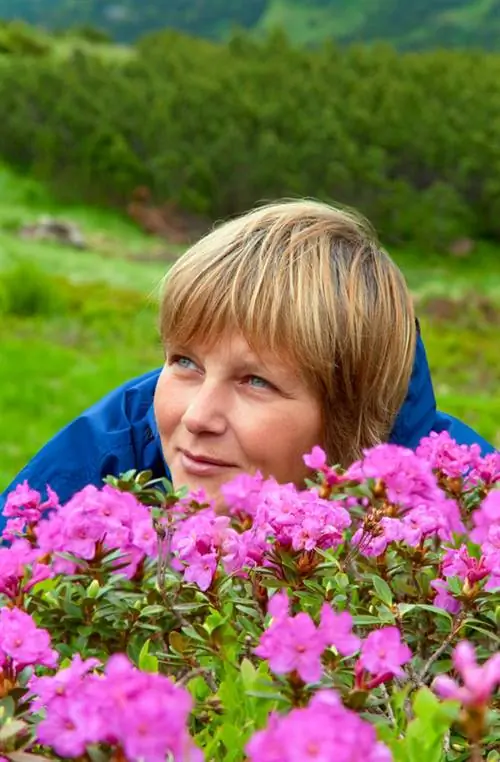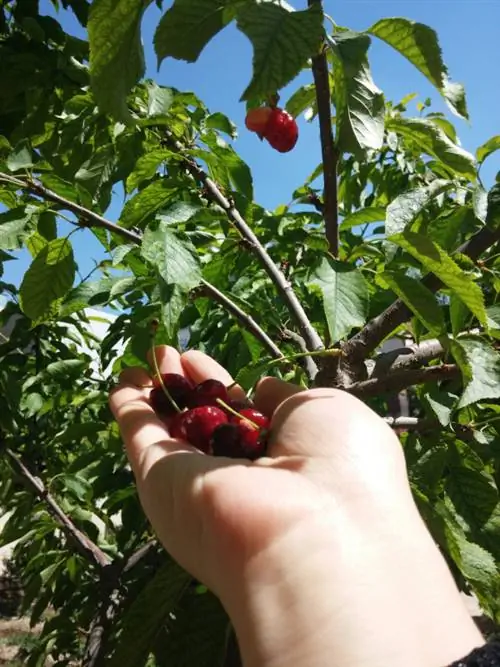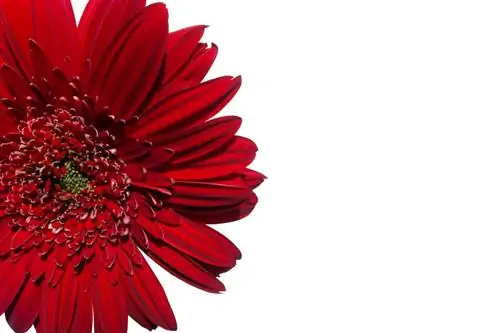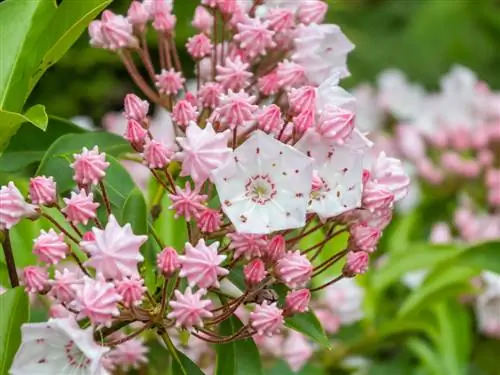- Author admin [email protected].
- Public 2023-12-16 16:46.
- Last modified 2025-01-23 11:20.
Jasmine, the popular house and balcony plant, delights the gardener with many white, strongly scented flowers during its long flowering period. Unfortunately, the plant is poisonous, so caution is advised if children and animals live in the house.
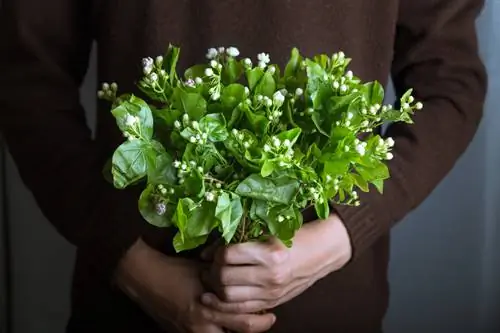
Is the jasmine plant poisonous?
Jasmine plants are poisonous due to their high content of essential oils and can cause symptoms of poisoning such as headaches, nausea and palpitations if parts of the plant are swallowed. Skin contact with the plant sap can also cause skin irritation.
Jasmine contains many essential oils
The fact that jasmine contains a very high proportion of essential oils can be seen from the scent of the flowers. The fragrances are toxic in high concentrations.
Some people react to the scent with a severe headache. In these cases, it is advisable to care for the plant not in the living room, but on the terrace in summer and in a frost-free basement in winter.
If there are small children or animals in the household, it is better to avoid the pretty climbing plant. Swallowing plant parts can cause symptoms of poisoning.
Even skin contact can trigger inflammation
Caution is advised when caring for and especially cutting jasmine. If the plant sap comes into contact with the skin, it can cause skin irritation.
Therefore, always work with gloves when cutting or repotting jasmine.
If jasmine has been eaten by children or animals
Eating jasmine flowers or jasmine berries causes various symptoms:
- Headache
- Nausea
- Vomiting
- Diarrhea
- Heart racing
If children or animals have accidentally eaten parts of the plant, to be on the safe side, contact your doctor.
Jasmine tea is not poisonous
Jasmine tea, which is particularly valued in Asian cuisine, is safe to drink. Here the concentration of toxins is so low that there is no danger.
Tip
The name Jasmin has Persian origins. Yasmin or Arabic jasamine means “fragrant oil”. Fragrance oils have been extracted from the flowers since ancient times and are also used in aromatherapy in this country.

